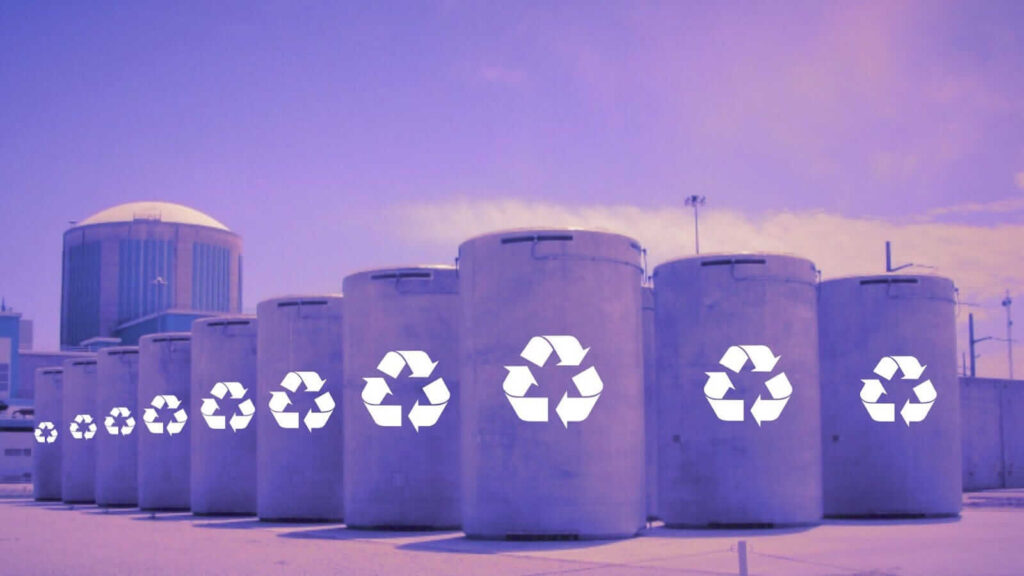Author: THE KERNEL & Kiersten Sundell
Why don’t we recycle spent nuclear fuel in the United States? Great question.
After five years of use in a reactor, over 90% of the potential energy in spent nuclear fuel still remains untapped. The only reason we retire it in the first place is because it’s no longer as efficient, and it’s also built up some neutron poisons – Xenon-135 and Samarium-149, which accumulate naturally over the course of the reaction. We call them poisons because they absorb neutrons, making it harder and harder to maintain a stable fission rate until the chain reaction just dies. At this point, it’s easier to just scrap the fuel and replace it than to wait for those neutron poisons to decay.
That being said, recycling the waste is very possible. A common recycling method involves chopping up the fuel rods and dissolving them in acid, separating out the remaining usable uranium and plutonium from the waste products. This recovered uranium and plutonium can then be used to make new nuclear fuel, meaning that we don’t have to mine all new uranium.
France and Russia have extensive programs for recycling nuclear waste, so why doesn’t the U.S.?
Unfortunately, almost everything’s about money – it’s cheaper to mine new uranium and make new fuel since reprocessing is expensive. According to a recent estimate from Argonne National Laboratory, using reprocessed fuel would cost the current U.S. nuclear reactor fleet an extra $3 to $4.5 billion per year. It requires specialized facilities, a laundry list of regulatory permissions, and a supply chain that we don’t currently have.
Another reason why we don’t recycle the waste is fear of proliferation. The U.S. briefly banned reprocessing in the 1970s partly for this reason, since extraction works plutonium. That being said, there are much more straightforward paths to getting nuclear material for bombs than the civilian nuclear power industry. Just ask North Korea!
Recycling waste in the U.S. is definitely possible – supply chains are built from the ground up all the time, and investors could be enticed by the promise of profitable advanced reactors that run on reprocessed fuel. While storing spent nuclear fuel isn’t a huge problem right now, I’m rooting for recycling. Anything that could create a more circular economy is an environmental win.



